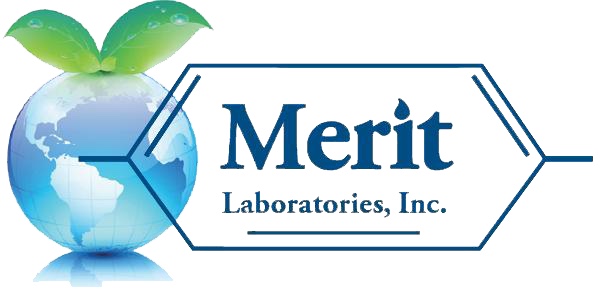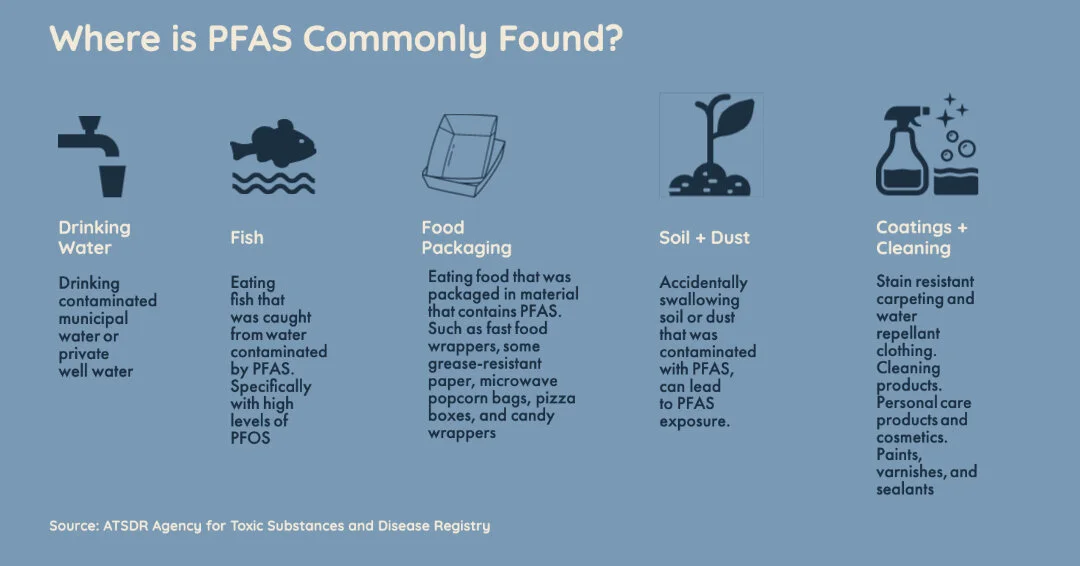Nearly everyone in the United States has been exposed to PFAS and likely have PFAS in their blood, especially perfluorooctane sulfonic acid (PFOS) and perfluorooctanoic acid (PFOA), according to the Agency for Toxic Substances and Disease Registry (ATSDR). PFAS chemicals have been used in industry and consumer products worldwide since the 1950s. These forever chemicals are prevalent in non-stick cookware, water-repellent clothing, stain resistant fabrics and carpets, some cosmetics, some firefighting foams, and products that resist grease, water, and oil.
Scientific studies have shown that exposure to some PFAS in the environment may be linked to harmful health effects in humans and animals. Being aware of common sources of PFAS in our environment will help to reduce and limit exposure. The primary source of exposure for most is through ingestion.
Ingestion sources for PFAS include:
Drinking contaminated water. To reduce your potential exposure to PFAS chemicals in drinking water, ATSDR advises consumers to find out if their local water source has been tested for PFAS by contacting their local health department. If drinking water is determined to have PFAS above safe levels, consumers should use an alternative source for drinking, food preparation and cooking, brushing teeth, and any other activity when you might ingest water. If you are on a well water source it is advisable to have your water tested for PFAS by a certified drinking water laboratory.
Eating foods like fish and shellfish grown or raised in PFAS contaminated water or soil. Consumers should check local fish advisories for fresh caught local fish, refer to the Environmental Protection Agency (EPA) fish advisory website, or contacting their local or state health department for freshwater and saltwater seafood advisories.
Eating food packaged in materials containing PFAS, such as, popcorn bags, fast food containers, and pizza boxes. Several consumer advocate groups maintain a data base of food packaging products that contain PFAS.
Merit Laboratories is a leading national PFAS environmental laboratory, analyzing drinking water, soil, wastewater, groundwater, and other sample matrices, including biosolids and sludge. Analytical methods performed by Merit for PFAS include drinking water by EPA 533, EPA 537.1, and EPA 537 rev. 1.1, biosolids by ASTM D7968-17 with Isotopic Dilution, and soil, wastewater, groundwater, and surface water by ASTM D7979-19 with Isotopic Dilution and ASTM D7968-17.


